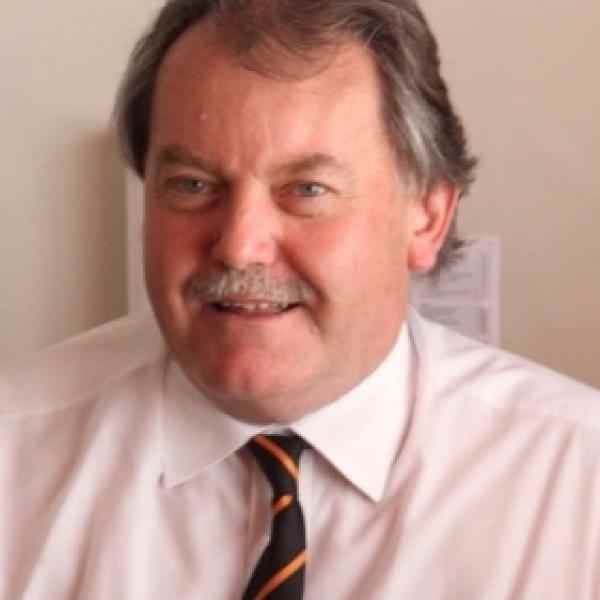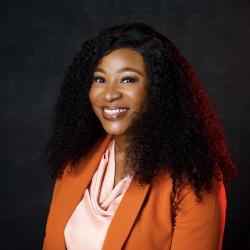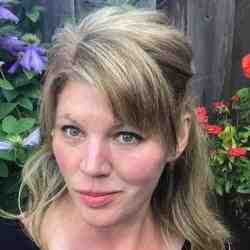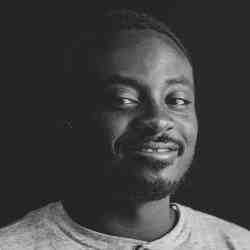Introduction
John is addressing inequalities in the education system in South Africa by providing better education opportunities to learners from less advantaged communities while bridging the social divide with their counterparts in more privileged schools. While doing so, he is reforming the education system itself by equating high performance in science and maths with the development of the learners’ social-emotional intelligence.
The New Idea
The problem of low performance for learners in schools in less privileged communities is a big challenge in South Africa, especially in Mathematics and Science subjects. This is mostly attributed to inadequate learning resources in the schools (including teachers) and also lack of exposure to better and more structured study programs that not only enhance academic performance, but also provide overall personal development of individual learners. John has developed an innovative model aimed at providing quality education to high school students from disadvantaged communities with strong social-emotional skills development to bridge the education divide with their counterparts in privileged schools to enhance performance while helping their overall human growth. The idea is to facilitate positive transformation of disadvantaged communities through meaningful education for the youth.
The model also includes the LEAP Future Leaders Program, a leadership program aimed at developing the learner’s potential outside the academic curriculum. This works further to advocate for aspiration of the teaching profession and makes it accessible for LEAP graduates with a goal of enrolling 10% of each LEAP graduating class to study education at tertiary level. Future Leaders can then study to become educators at a tertiary institution or by participating in LEAP’s own Leaders in Education internship. John has also developed another program called the LEAP Learning Centre which provides quality after-school tutoring to learners in LEAP schools’ partner communities. The learning center is a shared space for learners and teachers from various schools in the communities around the particular LEAP Schools, designed to provide a platform for interaction between students and teachers from diverse backgrounds and communities. This facilitates exchange of ideas and information and exposes learners to different ideologies, widening their scope of knowledge and helping enhance both academic and personal development. Tutors who participate in this program are drawn from qualified African refugees from the Democratic Republic of Congo, Burundi, Botswana and Zimbabwe and also professionals from South Africa providing an infusion of different learning experiences, culture and knowledge.
LEAP South Africa also ensures that learners understand social challenges facing their communities and are stimulated to take action and help in addressing them. To this extent, John created a Social Development program through which LEAP learners are connected to various community-based organizations and initiatives to see how they can contribute as individuals in developing possible solutions to various social challenges. The objective is to ensure that learners develop changemaking skills and a social connection to their communities which is essential for them to become future successful leaders, responsible citizens and changemakers. Through the multi-faceted strategy, John has managed to achieve a 94% pass rate for LEAP Schools in communities unlikely to achieve such performance as well as a 72% enrollment rate for tertiary education every year. Some of the LEAP graduates go on to start their own community action projects after understanding the role they can play as changemakers. Growing steadily since 2004, LEAP now has 1,000 learners in 6 schools spread over three South African provinces: Western Cape, Gauteng and Limpopo, with plans to fully scale nationally in the next 5 years. LEAP focuses on enabling self-awareness necessary for each student’s growth to healthy adulthood, and to ensuring optimal academic results which will allow for choices for lifelong learning and a fulfilling future.
The Problem
South Africa has an entrenched problem of unequal access to quality education opportunities between more privileged middle and upper class societies on one hand, and their poorer and less privileged counterparts in rural and township communities. Public schools in poor communities do not have adequate resources to provide their learners with the same level of quality education available to privileged learners who can afford to pay more and access better education facilities from well-resourced schools. Poor infrastructure, lack of adequate and well trained teachers, lack of adequate text books and structured studying and learning programs, lack of personal development and leadership programs are just a few of the problems facing learners in poor communities.
The poor standard of education in these communities is reflected in the substandard performance of learners which is consistently far much lower than the average performance of their counterparts in privileged and better resourced schools especially in Mathematics and Science subjects. A social policy research report from the University of Stellenbosch indicates that by the age of 8 years, students in the most affluent and privileged public schools (about 20% of the student population in public schools) are significantly out-performing their counterparts in less resourced public schools both in academic performance and general knowledge. Further, South Africa ranked 14th out of 15 Sub-Saharan countries in reading performance, and 12th in Mathematics in a survey conducted on children from disadvantaged communities in the region (Southern and Eastern African Consortium for Measuring Education Equality Survey, 2007). To aggravate this, the government of South Africa does not have the capacity to train adequate teachers for all public schools and the few available and well experienced teachers get frustrated because of inadequate teaching materials in less privileged schools.
Another problem that has been identified with poor academic performance in less privileged schools relates to lack of dedication, hard work and commitment towards learning by students which stems from lack of exposure to best practice study habits and relevant support systems. Most learners in townships and rural communities come from families where the value of education and related commitment and discipline to study beyond designated class time is not enforced. A lot of teachers focus on engaging learners during class period only and are not concerned with what study routines they have after classes. Privileged schools on the other hand have structured study and personal development programs that go beyond classrooms to help learners achieve their potential both academically and socially. Reports state that individuals at low quality government schools are more likely to receive less resources to enable effective learning and structured study programs, therefore more likely to repeat classes or drop out of school (and far less likely to access tertiary education) than their colleagues in more affluent government schools (IRIN Humanitarian news analysis, 2006).
There are a number of dispersed initiatives in South Africa that attempt to address this problem but most of them place emphasis exclusively on the cognitive skills necessary to reach high levels of performance in detriment of all the other relationship and social-emotional skills that are equally needed for learners to excel. Before they are more instrumental and focus primarily on the access of learners to higher education, they miss the opportunity to, in doing so, provide opportunities for their overall human and social development.
The Strategy
LEAP’s approach to education is multi-faceted with interventions staged at different levels. Through initiatives aimed at different target groups (learners, teachers, community leaders and other stakeholders) John has created an education model that brings sustainable change in under-resourced communities through a broad network and community of practice. The LEAP methodology has a strong focus on Mathematics and Sciences which are compulsory subjects for every learner as part of the curriculum. This serves to demonstrate that given the relevant support structure, any student can study and do well in these subjects which are currently shunned by most learners in under-resourced schools as they are perceived as tough. The model has extended school days that start from 8:15 am to 5:15 pm (with Saturday classes and formal holiday programs) incorporating various activities within and outside the classroom to help learners enhance different aspects of their personal lives and academic performance. Further, LEAP methodology places just the same weight of importance on the non-cognitive skills and embraces specific values and ethos that are embedded in the curriculum to create an environment where students are open to express themselves and develop consciousness of their rights and responsibilities. The values are agreed upon between the school, teachers, students and community members to create a unified sense of affiliation to the LEAP community. The six values that hold the LEAP community together are: (1) Being kind and honest and healthy; (2) Being punctual and always looking good; (3) Working hard and never giving up; (4) Admitting and learning from mistakes; (5) Confronting issues and being open to change; and (6) Working together and sharing.
These core values are not just aspirational statements, they a living part of the way the school functions and how the school community operates, serving as a code of conduct. Every day, students and teachers are held accountable for these values during the Life Orientation sessions: hourly cycle gatherings where they can all talk about their feelings, discuss matters of the school, of society, and share their dreams and aspirations, but also confront each other and criticize in order to improve the school. Therefore, life orientation at the LEAP Schools is directed towards the overall development of the school community and to group behavioral change informed by these values, which are, in essence, the values of human development so Life Orientation is a living metaphor of real post-school adult life.
John believes that learning is not restricted to the classroom but goes beyond to shared experiences and knowledge with people from diverse societies and backgrounds. This is why each LEAP school is partnered with a privileged school and also an under-resourced school from the community where the specific LEAP school is. This three-way partnerships provides a platform where students share experiences both on academic and personal levels to bridge societal barriers and create and expose the students to an open world of ideas and possibilities. The partnership facilitates sharing of infrastructure and programs like science laboratories, sports facilities, study groups and other extra-curricular activities that help break the social divide and create empathy between learners from diverse backgrounds.
Further, each community which has a LEAP school has a Learning Center which is open not only to LEAP students but to all students in the community who are interested to be part of the program. The center has teachers who help the students with homework and after school extra lessons where necessary to ensure improved academic performance. The teachers are professionals drawn from a diverse community of refugees (including South African professionals) who bring to the center diverse knowledge and experience exposing the students to an open world of different cultures and values. Further, both the students and teachers are, as part of the curriculum connected to various community based organizations working within the vicinity of the school to expose them to various social challenges facing their communities and what can be done to help address them. Through this Social Development Program, the learners spend part of their school time engaging with these organizations as individuals in their own way which helps stimulate the drive to create change, which is essential for leadership skills. Learners thereby commit to becoming agents of change in their communities of origin by working with local CSOs, community-based organizations, crèches and public schools at least twice per term.
LEAP also has a Leadership Program where learners develop their leadership potential to ensure that they graduate not just with high academic performance, but also having acquired soft skills that help develop the whole person. Besides developing leadership potential, the program also works to advocate for aspiration for the teaching profession and makes it accessible for LEAP graduates. Finally, recognizing that their own cultural identity, especially in the South African context, is critical for their development, John added a Cultural Identity Program, where leaners themselves select which activities they want to run – such as a choir, a debating club, a dance group, etc. – which they do without the interference of teachers.
John started LEAP South Africa in 2004 with the first school (LEAP 1) in Langa Township in Cape Town. Currently, there are 6 LEAP Schools in 3 provinces of South Africa (Western Cape, Gauteng, Limpopo) with about 1,000 learners registered in different grades at high school level. John plans to scale out and establish LEAP Schools in all provinces in South Africa in the next five years. LEAP schools have managed to consistently reach and maintain high levels of academic performance in all subjects including Mathematics and English, in communities where such results were mostly unlikely. On average LEAP maintains a 94% pass rate across the board. This significantly surpasses the average pass rate of between 58-66% for most schools in under-resourced communities. Further, 89% students from LEAP schools pass Mathematics and English subjects, as compared to only 38-41% in under-privileged schools. LEAP also boasts a 72% rate of graduating students who gain entry into tertiary education.
Nevertheless, as successful as the LEAP Schools have been, John’s vision had never been to simply create a school: he had always wanted to change the school system itself. This is why he is using the LEAP experience to show it is possible, and with it inform and change practices across the entire system. Apart from spreading the LEAP model to other schools, he also co-founded the South African Extraordinary Schools Coalition (SAESC), a network of almost 30 schools throughout the country which share the same values and principles and which are committed to academic excellence with social-emotional development for underprivileged youth. Together they share best practices, co-host teachers “in-residence” to further their skills, as well as influence national education policies. In the next 5 years, John also plans to create a global teachers’ institute to help teachers change their behavior to best facilitate learning in schools, as well as a national leadership initiative for young learners across South Africa.
The Person
John grew up in a working class family in Pretoria, South Africa. His father was a plumber working for South African Railways and his mother a clerk. Neither of his parents finished school and John was the first university graduate in the family. His early family years were marked by commitment to a fundamentally evangelical and moralistic framework. From a young age, he developed a strong desire for teaching because he had faced several challenges during his own education, such as the strict hierarchy, corporal punishment, the conflict of requirements and the overall feeling that he had no voice in school.
In the mid 1980’s, John was very involved in sports coaching in the township community of Langa in Cape Town. He launched the Langa Hockey Club in 1987 and this club has grown into the most successful township field hockey club in the country. He coached many young provincial and national hockey and cricket players from this community. However, it was only when he started to attend the funerals of some of these young players that it dawned on him that he would need to work at another level. The imperative began to emerge within him to create a real learning space with a focus on young people developing and internalizing real values that would empower and enable lifestyle choices to be healthy.
John then developed a career as a teacher at Pinelands High School where he later became senior counselor. During this time he learned much about young people and the challenges of adolescence. He also learned much about the inadequacies of the education system to deal with children in emotional crisis. He identified strongly with many of these children having struggled through ‘seeking identity’ in his own adolescence. The system of referral makes schools pass on the perceived ‘problems’ with young people to external counselors, psychologists, social workers and adolescent addiction units quite easily and without any real accountability. He became the head of Abbott’s College in Claremont in Cape Town from 1998 to 2002 and during that time continued to refer ‘problem children’ to Kenilworth Clinic and similar support agencies.
At the start of 2003, having resigned from his position as head of Abbott’s, John volunteered for 10 months as a counselor at the clinic to ‘hang deep’ to discover what made places such as these able to respond to adolescent crisis with real empowering effect. He learned very quickly that the magic simply lay in the creation of emotional safety for children and the patient unlocking of the peer voice as a primary intervention in times of crisis. During his career, he was constantly struck by how little emphasis was given to the emotional development of learners and the overemphasis on the cognitive skills. In contrast, he was also struck by the inadequacy of the public education system, especially in under-privileged communities and the inequality which exists with their counterpart well-resourced and private schools. These experiences together formed the foundation of the Langa Education Assistance Program (LEAP) which has over time evolved into the current LEAP Schools Model, which John founded in 2004, upon resigning from his teaching position to develop and grow his idea.
John has been continuously developing the LEAP education model and in 2005 he added the Teacher Training Program which today is called the Future Leaders Program and has 25 students enrolled. Today LEAP South Africa has 6 schools in the townships of Langa, Gugulethu and Crossroads in Cape Town, Alexandra and Diepsloot in Johannesburg, Ga-Rankuwa in Pretoria and Jane Furse in Limpopo. John is planning to infuse the model to all Provinces in South Africa and created best practices to be adopted by other education institutions working in similar communities. Since 2006, he began to explore international partnerships and helped to start Teach With Africa as an international CSO creating movement of teachers and training teachers between South Africa and the USA with a view of growing, developing, sharing and learning best practices in multiple contexts. The international connections have grown significantly in the past seven years with many young people from South Africa having had the opportunity to teach and learn in the USA as a consequence. John has now become a recognized and respected figure in South Africa, advocating for structural changes in the education system, including new management schemes, such as the legal establishment of “contract schools” (government funded, but privately managed) as well as the further strengthening of the independent school movement in South Africa.




